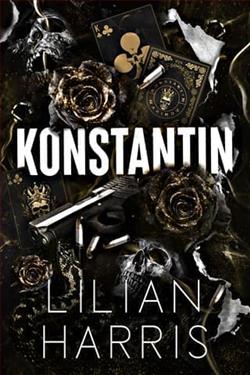Page 11 of The Burning Wire (Lincoln Rhyme 9)
"See, that's this damn cloud zone."
Rhyme could also hear McDaniel's criticism of Fred Dellray: The point of informants was to learn about things before they happened.
"Well, keep at it, Fred," McDaniel said. "You're doing a good job."
"Sure, Tucker."
Noble had given up fidgeting with the pen. He was consulting his watch. "So Homeland'll coordinate with Washington and the State Department, embassies too, if we need to. But the police and the Bureau'll run the case like any other. Now, Lincoln, everybody knows your expertise with crime scene work, s
o we're hoping you'll work point on analysis of the trace. We're assembling a CS team now. They should be on location at the substation in twenty minutes. Thirty, tops."
"Sure, we'll help," Rhyme said. "But we run the entire scene. Entrance to exit. And all secondary scenes. Not just trace. The whole ball of string." He glanced at Sellitto, who nodded firmly, meaning, I'm backing you up.
In the ensuing awkward moment of silence, everybody was aware of the subtext: who would ultimately be in charge of the investigation. The nature of police work nowadays was such that whoever controlled the forensics basically ran the case. This was a practical consequence of the advancements in crime scene investigative techniques in the past ten years. Simply by searching the scenes and analyzing what was found, forensic investigators had the best insights into the nature of the crime and possible suspects and were the first to develop leads.
The triumvirate--Noble and McDaniel on the federal side and Sellitto for the NYPD--would be making strategic decisions. But, if they accepted Rhyme as key in the crime scene operation, he would be in effect the lead investigator. This made sense. He'd solved crimes in the city longer than any of them had, and since there were no suspects or other significant leads at this point, other than evidence, a forensic specialist was the way to go.
Most important, Rhyme wanted the case bad. The boredom factor . . .
Okay, some ego too.
So he offered the best argument he could: He said nothing. Just settled his eyes on the face of the Homeland Security man, Gary Noble.
McDaniel fidgeted a bit--it was his crime scene people who would be demoted--and Noble lobbed a glance toward him, asking, "What do you think, Tucker?"
"I know Mr. Rhyme's . . . I know Lincoln's work. I don't have a problem with him running the scene. Provided there's one hundred percent coordination with us."
"Of course."
"And we've got somebody present. And we get the findings as soon as possible." He looked into Rhyme's eyes, not at his body. "The most important thing is fast response time."
Meaning, Rhyme suspected, can somebody in your condition deliver? Sellitto stirred, but this wasn't a crip put-down. It was a legitimate question. One that Rhyme himself would have asked.
He answered, "Understood."
"Good. I'll tell my Evidence Response people to help however you want," the ASAC assured him.
Noble said, "Now, for the press, we're trying to downplay the terror angle at this point. We'll be making it sound like an accident. But the news leaked that it may be more than that. People are freaked out."
"I'll say they are." McDaniel nodded. "I've got monitors in my office checking Internet traffic. Huge increases in hits in search engines for 'electrocution,' 'arc flash' and 'blackouts.' YouTube viewings of arc flash videos are through the roof. I went online myself. They're scary as hell. One minute there're two guys working on an electric panel, then all of a sudden there's a flash that fills the whole screen and a guy's on his back, with half his body on fire."
"And," Noble said, "people're real nervous that arc flashes might happen someplace other than a substation. Like their houses and offices."
Sachs asked, "Can they?"
McDaniel apparently had not learned all there was to know about arc flashes. He admitted, "I think so, but I'm not sure how big the current has to be." His eyes strayed to a 220v outlet nearby.
"Well, I think we better get moving," Rhyme said, with a glance at Sachs.
She headed for the door. "Ron, come with me." Pulaski joined her. A moment later the door closed, and soon he heard the big engine of her car fire up.
"Now, one thing to keep in mind, one scenario we ran on the computers," McDaniel added, "was that the UNSUB was just testing the waters, checking out the grid as a possible terror target. It was pretty clumsy and only one person died. We fed that into the system and the algorithms are suggesting that they might try something different next. There's even a potential that this was a singularity."
"A . . . ?" Rhyme asked, exasperated at the language.
"Singularity--a onetime occurrence. Our threat analysis software assigned a fifty-five percent nonrepeatability factor to the incident. That's not the worst in the world."
Rhyme said, "But isn't that just another way of saying there's a forty-five percent chance that somebody else somewhere in New York City's going to get electrocuted? . . . And it could be happening right now."















